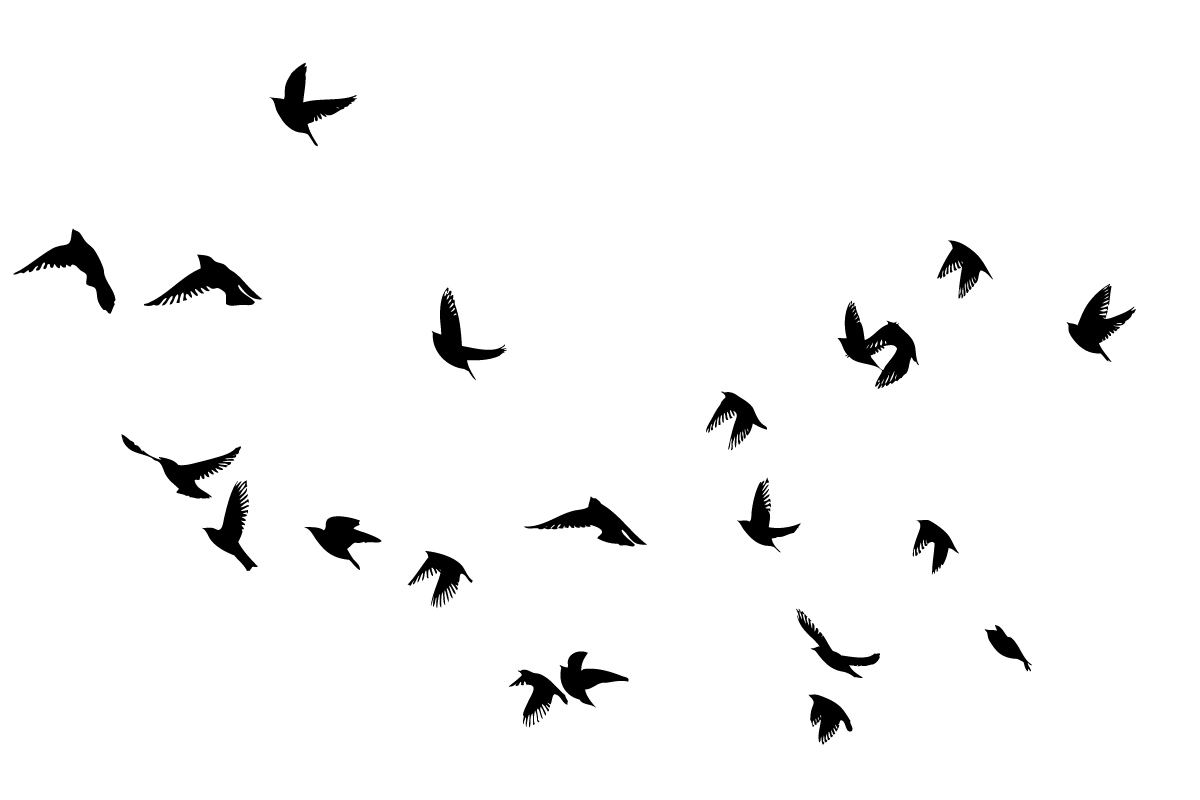I have never understood why “for the birds” means silly or crazy. The birds at my three feeders every morning — chickadees, titmice, sparrows, nuthatches, cardinals, woodpeckers, goldfinches, and even the flocks of starlings that pass through with their whistles and clicks — give me untold pleasure. The moments I spend enjoying them — and yes, talking to them, to my teenage sons’ eternal mortification — are moments out of time, the moments that Arianna Huffington tells us to create and treasure if we hope to thrive.
My birds reconnect me to my childhood, when I watched them out the kitchen window at my mother’s feeder, with Mr. Cardinal, as my Belgian grandmother fondly called him when she visited, presiding in his bright red coat. (Belgium has no cardinals.) They recall long and lazy summer days when I woke up to the “bob bob white!” of the quail and went to sleep to the sounds of the whippoorwill. Indeed, my father groans a bit when I call home and spend half the call talking to my mother about what birds are at my feeder compared to hers, and what kind of thistle or safflower seed blend she uses to attract different species.
I am no great birder. I can recognize all the familiar backyard locals and happily identify migrating visitors with my bird book. Hawk sightings, a rare and thrilling glimpse of one of our pair of bald eagles down on Lake Carnegie, or the pleasure of hearing a kingfisher’s “kikikikiki” when I walk on the canal close to dusk, gets me very excited. But I do not seek to make birding a hobby, to memorize bird songs through one of the many apps that promise to make me an overnight expert, or even to keep lists of birds I’ve seen the way I keep a book of books I’ve read.
Quite the contrary. To become a birder would mean to add one more activity to a life that is already crammed too full. It would mean yet another set of goals, another body of knowledge to acquire. It would mean finding some new area in which to strive. Striving is not always antithetical to thriving; if we are lucky enough to do work that we love, then striving and thriving can often go hand in hand. But the message of Thrive is the importance of not striving all the time, of kicking back and meditating, sleeping, reflecting, and wondering. It is to build time into our days, months, and years in which we stop wanting and needing and pushing and multi-tasking. Stop. Breathe. Smile. Center yourself. Remember what really matters.
Which brings me back to my birds. The other day I pulled into our driveway and passed so close to the finch feeder that I was no more than two feet from a young goldfinch who was busily gobbling niger seed. In the early spring the finches eat voraciously to get the energy they need for their feathers, which turn a dull light green in the winter, to blaze back into the dazzling yellow they need to attract a mate. He was eating so intently that he did not pause when I stopped the car for a minute to gaze at the intricate black and white pattern of his wing feathers folded against his back. So delicate, precise, and extraordinarily perfect.
I lost myself for a moment admiring them. Think about that phrase. I “lost myself.” Losing myself meant getting outside the whirling lists, plans, dreams, and worries in my head. Living exactly in that particular moment, the moment of being in my driveway on an early spring day in a pool of longed-for sunshine marveling at the colors and patterns of a bird’s feathers. Making an ordinary moment in an ordinary day something more. I often think to myself that a good life is a collection of such moments; that when I look back on my deathbed I am going to remember not what I achieved in my life, but how well I lived.
Arianna urges us to meditate; I’ve had “take up yoga” on my to-do list for years, alongside mindfulness courses. I recognize the irony of that statement, of course, but so it goes. Perhaps I will get there one of these days. But in the meantime, I firmly believe in sleep; I decided when I turned 40 that I was an infinitely happier, pleasanter, and more productive person on seven to eight hours of sleep every night, even if early morning trains and planes mean that I get five to six hours some nights and have to catch up the next. I create downtime for myself by walking as much as I possibly can — not just to and from work, but also between appointments by blocking out more time on my calendar than I need for the appointment itself. I take pleasure from a smile exchanged with a passerby, the architectural details on an old building that no one notices as they race by with their eyes on their screens, or simply the endless variety and pattern of city life.
And in the early morning, late afternoon, and twilight hours of the precious days I manage to be at home, I have my birds.
This piece originally appeared on Huffpost.com


